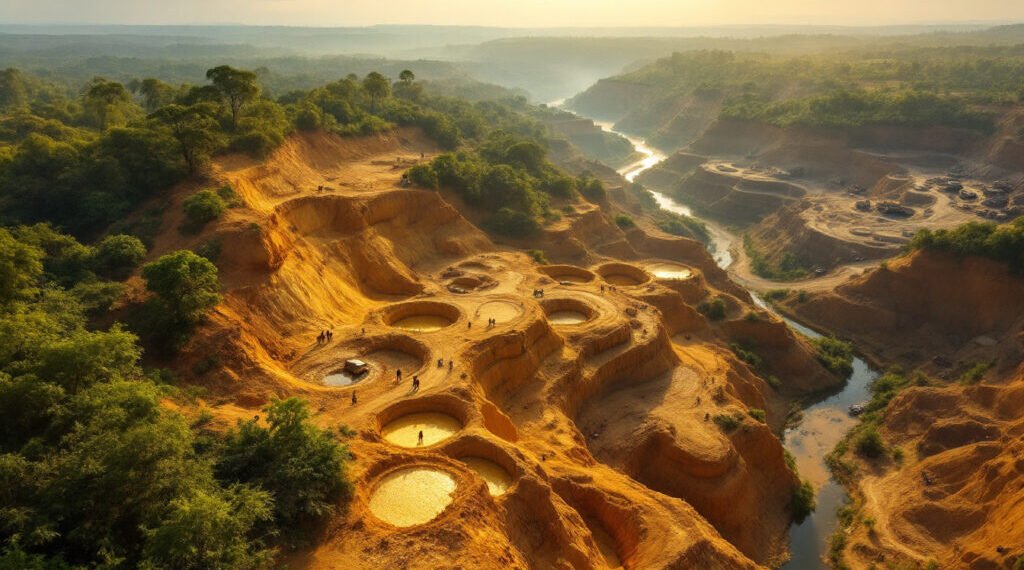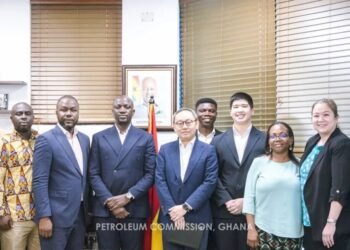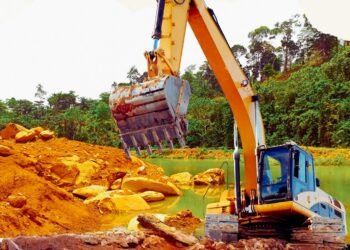Ghana’s economic growth continues to show strong numbers, with projections indicating a steady rise in GDP. However, experts warn that the country’s development trajectory is environmentally unsustainable, threatening its long-term stability.
This concern was raised during a high-level consultative dialogue hosted by the IMANI Centre for Policy and Education, where stakeholders warned that Ghana’s current economic trajectory undermines its climate commitments and long-term ecological health.
The event highlighted the widening gap between GDP growth and environmental stewardship, despite Ghana’s commitments under the Paris Agreement and the Sustainable Development Goals (SDGs).
“Ghana’s growth narrative has long ignored environmental consequences.
“Our GDP has been expanding, but so has deforestation, pollution, and climate vulnerability. We cannot continue with business-as-usual development when the evidence shows it’s eroding our natural capital.”
Dennis Asare, Senior Research Associate at IMANI
The dialogue, held under the theme “Assessing Ghana’s Readiness to Support Green Business Investments Towards Achieving the Climate Goals,” brought together policymakers, environmental experts, and private sector actors to evaluate Ghana’s preparedness to transition to a green economy.
Ghana’s GDP grew by 3.8% in 2022 and is projected to reach 4% by 2025, according to IMF report.
However, this growth is largely driven by extractive industries—such as gold mining, timber, and oil—which also lead to widespread deforestation and environmental degradation.

Data from Global Forest Watch shows that Ghana lost over 1.2 million hectares of forest between 2001 and 2021, placing it among the top deforesting countries in Africa.
Moreover, Ghana’s energy supply remains heavily dependent on fossil fuels. While the country has expanded electricity access, only 1% of its energy comes from modern renewable sources, posing a major obstacle to meeting its climate goals.
IMANI’s report from the dialogue pointed out three critical challenges obstructing the green transition.
“Ghana has numerous climate and development policies, but limited coordination between ministries has resulted in duplication and confusion.”
Dennis Asare, Senior Research Associate at IMANI
IMANI further noted that the country lacks strong fiscal and tax incentives for green businesses, particularly small and medium-sized enterprises (SMEs).
Also, it revealed that only about 14% of climate finance in Ghana is sourced from the private sector, signaling limited confidence and engagement.
“The private sector is ready to act, but the policy signals and investment climate are simply not supportive.
“If green businesses continue to face high financing risks and lack access to credit, we’ll never achieve climate-aligned growth.”
Dennis Asare, Senior Research Associate at IMANI
Call for Sustainable Future

To reverse the unsustainable growth trend, IMANI and other experts proposed that the country should develop a National Green Investment Strategy.
This, according to IMANI would unify goals across ministries and present a clear roadmap for attracting both local and international green capital.
“Tax breaks, green bonds, and startup grants should be deployed to de-risk investment and support innovation for green SMEs.”
Dennis Asare, Senior Research Associate at IMANI
Municipal assemblies and relevant ministries need technical support and training to align their development plans with green priorities.
Public-private partnerships and blended finance models could unlock larger pools of capital for clean energy, sustainable agriculture, and waste management.

Regulatory bodies must rigorously enforce environmental impact assessments and penalize violations in key sectors like mining and agriculture.
The dialogue emphasized the need to rethink the metrics of national development.
“GDP alone is not a measure of progress,” one speaker argued. “We need to measure growth in terms of resilience, equity, and sustainability. Otherwise, we risk short-term gains that come with long-term costs.”
As Ghana’s newly appointed Minister of State for Climate Change and Sustainability assumes office, the timing is seen as an opportunity to reshape the country’s development path.
Stakeholders urged the government to act with urgency to embed sustainability into all sectors of economic planning.
The warning from IMANI and experts is clear: Ghana’s economic growth must align with green principles—or it risks running out of time and natural resources.
READ ALSO: Mahama Promises Revamp of Tema Oil Refinery Through PPP























